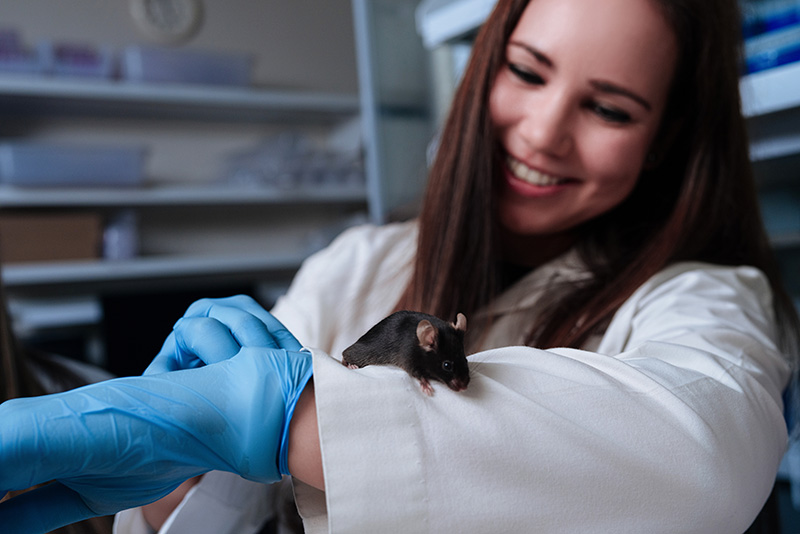 The scientific community’s experience with the COVID-19 pandemic brought into sharp focus the significance of animal models that replicate the course of disease and response to potential vaccines and therapeutics seen in humans. This importance is further underscored by the looming emergence of “Disease X”, for which having a strong foundational knowledge of related pathogens will be critical to rapidly developing effective countermeasures. In order to establish this foundational knowledge base, development, refinement, and characterization of variety of animal models is needed. Our lab applies our extensive experience working with a variety of animal species to develop robust animal models that accurately replicate key aspects of infection and disease. This has most recently included developing a neurodevelopmentally-appropriate, immunocompetent mouse model of neurological chikungunya virus (CHIKV) infection to study CHIKV neuropathogenesis. We also perform screens of the Collaborative Cross mouse genetic reference population to identify specific mouse strains that replicate key features of clinical disease or pathology. We then perform in depth characterization of the model, using approaches such as clinical and neurocognitive testing, immune evaluation through methods such as flow cytometry and RNA-Seq, and histopathological assessment. Much of this work is done in collaboration with other investigators both at Texas Biomed and at other institutions.
The scientific community’s experience with the COVID-19 pandemic brought into sharp focus the significance of animal models that replicate the course of disease and response to potential vaccines and therapeutics seen in humans. This importance is further underscored by the looming emergence of “Disease X”, for which having a strong foundational knowledge of related pathogens will be critical to rapidly developing effective countermeasures. In order to establish this foundational knowledge base, development, refinement, and characterization of variety of animal models is needed. Our lab applies our extensive experience working with a variety of animal species to develop robust animal models that accurately replicate key aspects of infection and disease. This has most recently included developing a neurodevelopmentally-appropriate, immunocompetent mouse model of neurological chikungunya virus (CHIKV) infection to study CHIKV neuropathogenesis. We also perform screens of the Collaborative Cross mouse genetic reference population to identify specific mouse strains that replicate key features of clinical disease or pathology. We then perform in depth characterization of the model, using approaches such as clinical and neurocognitive testing, immune evaluation through methods such as flow cytometry and RNA-Seq, and histopathological assessment. Much of this work is done in collaboration with other investigators both at Texas Biomed and at other institutions.
